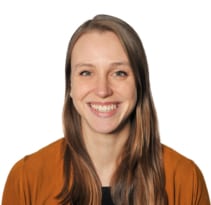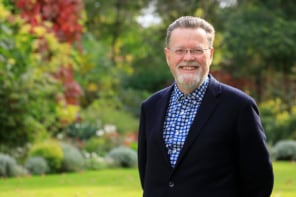Louise Adams is an IT transformation expert at PA Consulting, a global innovation and transformation consultancy. She works with a range of clients using cloud technology and agile ways of working to build strategic IT enablers to transform their businesses
 What sparked your initial interest in physics?
What sparked your initial interest in physics?
I remember always having been fascinated by astronomy and the vastness of the universe. I was especially interested in planetary science – after reading about Jupiter’s moon Io, I wrote a detailed (and accurate) description of its features while my sister was having a swimming lesson. When I showed it to my mum she thought I had made it up, so when we got home I had to show her the book, which I had read it in, to prove it. At school I had brilliant physics teachers, including most notably Dr Bradley. She really called my attention to the variety that studying physics could offer, from wave–particle duality to cosmology.
Did you ever consider a permanent academic career in physics?
Going into academia was my original plan when I chose the MSci in physics at the University of Bristol, UK. I was fairly sure that pursuing a PhD and a career in academia was for me. Then towards the end of my second year, I started to properly think about my future options and realized that I might be better suited to something else. I went and worked in a secondary school in Bristol, supporting science lessons as part of an outreach programme with the university, and while I really enjoyed it, my parents encouraged me to look at all my options.
I realized I wanted to get into business and try something new. I was concerned that if I chose to pursue a PhD I would be spending a large amount of time on my own writing and preparing my thesis, which didn’t appeal. I think you must be 100% committed to consider a PhD in your field, given the solitary motivation you will need to get you through it – if not, it would be worthwhile to check out some other options, there are so many out there.
How did you get interested in digital technologies?
I was always interested in computers, but gaming and coding were never really my interests growing up. I started a technology graduate scheme with Tesco straight after university. I thought this would be a good idea as I was interested to see how Tesco used technology systems to support its retail operations, and the scheme offered rotations around the IT department to get exposure to different areas of the business. I worked on till systems; built a prototype dashboard for stores to better understand their energy usage; built infrastructure to support services running on Tesco.com for a Christmas peak; and mapped out the interactions for a set of legacy stock systems. I was fascinated to see how integrated and essential the systems were to the smooth running of the business, and how changes and new developments were handled to ensure the company could be as reactive as possible.
I moved into consultancy to continue working on different IT systems and in new situations. I’ve been lucky to experience a variety of roles including project management, architecture and agile-coaching, all in environments using digital technologies. I have had some excellent career support and coaches along the way who have encouraged me to take risks in technology areas that I felt weak in, to help develop me into a better consultant.
What were some of the challenges in moving from academia to working in the tech industry?
You have to be prepared to continue learning – the tech industry is forever changing so you have to be ready for that. Working environments are different from academic ones, the most obvious being that you will be working in teams of people with a wider variety of ages and personalities than you would have experienced throughout school and university.
What does your current role as a management consultant in digital technologies entail?
At PA we come up with enduring solutions that make an impact for a wide range of clients. Our clients need to tackle a variety of problems associated with digital technologies such as adopting and optimizing public cloud usage; ensuring consistent digital working environments; and meeting compliance and security concerns. The work we carry out is fairly hands on. We are often brought in to support a specific challenge, and expectations are high, but we believe in the power of ingenuity to build a positive human future in a technology-driven world.
Consulting has given me excellent variety in the work that I do, and I’ve supported clients in their transformations across a range of sectors including retail, financial services, energy and utilities, and the public sector.
How has your physics background been helpful in your work, if at all?
I think there are parallels between my interest in physics and the work I do now. First, I found with studying physics that there are so many fields that are interesting and worth researching but (for me at least) it was overwhelming trying to understand everything to the level of detail I wanted, and so prioritizing key areas for my interest was essential. I’m in the same situation with my career. There is a continual pipeline of new releases and technology features, so continual learning is essential, but so is prioritization because it’s impossible to be an expert on everything.
Second, for me, studying physics was not a walk in the park, but I am motivated by challenges, and so overall it was a very positive experience. I have taken that understanding with me into my career and there are plenty of challenging situations in consulting that can be turned into opportunities. My degree experience overall set me up for a lifetime of learning, with everything I need to continue to grow and develop in my career.
Any advice for today’s students?
Find what motivates you and be true to it. Adjust your university experience to make sure that you put the most into it, and get the most out of it. This is the point in your life where you have the most time available to pursue your interests and hobbies, so it’s good to have a balanced experience. Post university, really think about what you enjoy and what you personally deem to be successful, but keep in mind that this is different for everyone so don’t feel you should just follow the crowd. Choose an option that supports continuing to develop you as a person.


